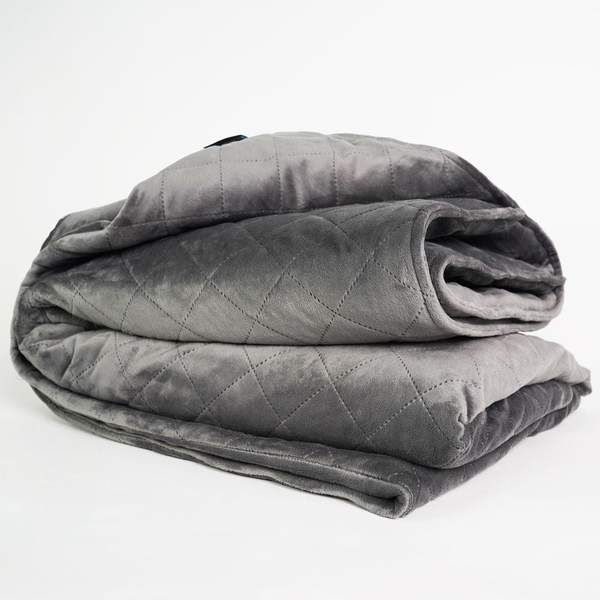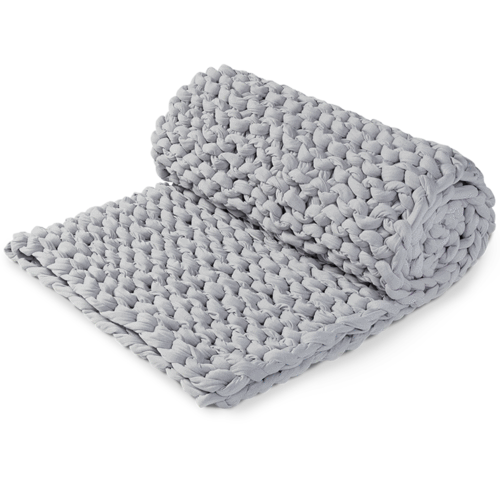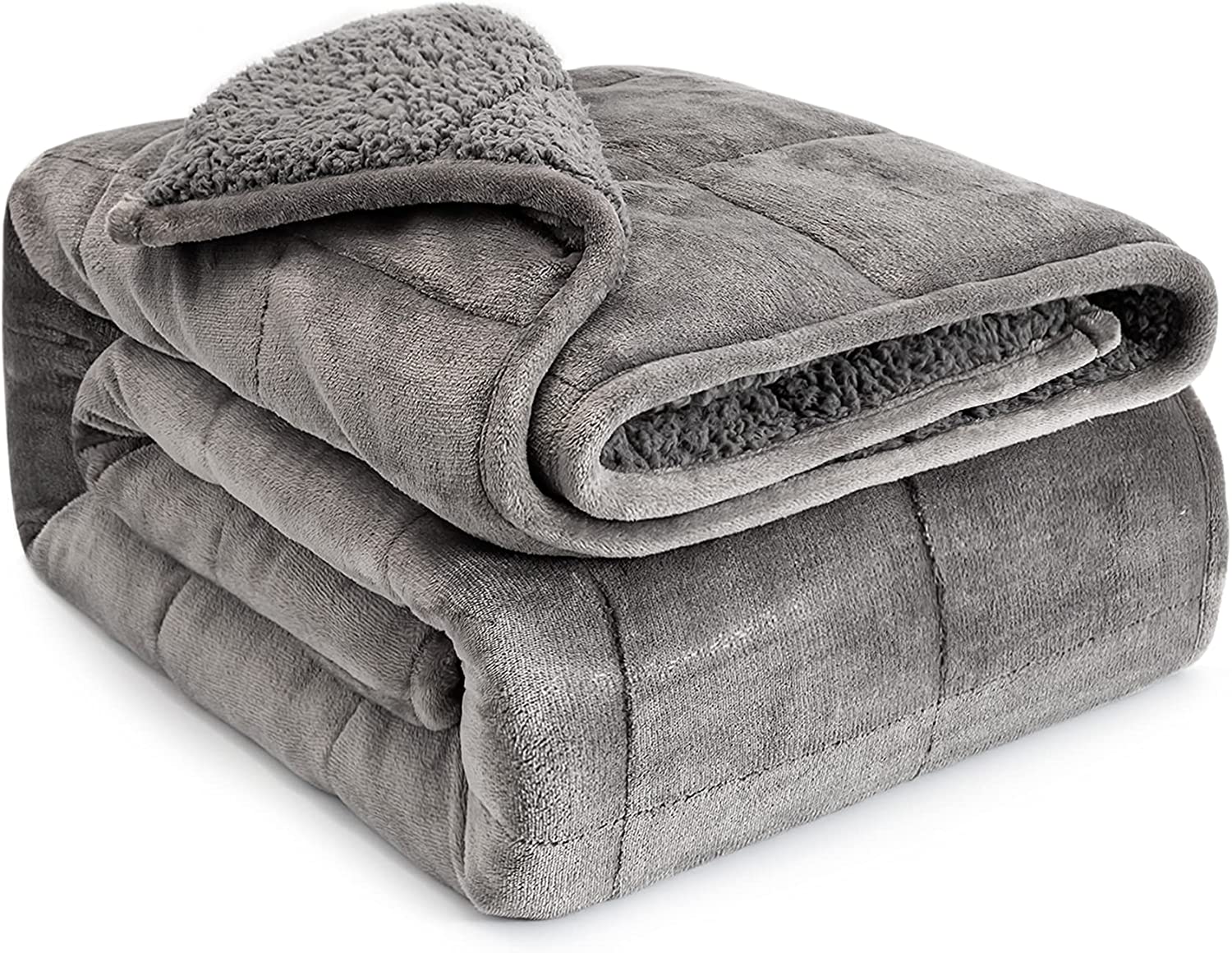At Refinery29 Australia, we’re here to help you navigate this overwhelming world of stuff. All of our picks are independently selected and curated by the editorial team, but we may earn commission or other compensation from the links on this page.
Remember how when we were kids, every year during the holidays, there was one toy — Tickle-Me Elmo, Furby, or that pink Barbie car — that was coveted by every single child within the same approximate age bracket? When you think about it, we’re still curating our wish lists like that. See: The time we invested in those iPads we now never use, and the time Vitamix convinced us we could take all our meals in liquid form. Old tech-lifestyle trends die hard. And then they take up valuable storage space.
AdvertisementADVERTISEMENT
Having never tried one, I was ready to lump weighted blankets into this category. For the unfamiliar, weighted blankets were originally designed for people living with autism, post-traumatic stress disorder, and sensory issues; a few years ago, they suddenly became a must-have item for a much wider swath of people. Obviously, for some people, they aren’t a trend but an important medical device. But what became of all those other weighted blankets, the ones impulsively purchased from Amazon, or gifted from family members unsure of what else to buy? What, I wondered, became of all those weighted blankets? Are people still using them? And if you missed the trend, is it worth investing now?
A highly informal poll of Refinery29 Twitter followers reveals that the majority who own weighted blankets actively love them. Like, want-to-buy-more-level love. “I use mine every night still and I actually kind of wish it was a little heavier, but I don’t want to shell out the money right now because they’re so expensive,” says Katie, who lives in Southern California.
“My roommate and I have stress relief/viewing parties with them for our shows, but they only come out in the winter. I enjoy it because it forces us to get cozy and slow down,” shares Casey of Minnesota.
“I use mine whenever it’s not a billion degrees at night! My anxiety levels are high in the mornings and it does wonders to ease into the day,” says Sarah of San Diego.
AdvertisementADVERTISEMENT
Even those who aren’t personally using their weighted blankets don’t seem to regret buying them. Jandra, who lives in Nashville, confesses to owning six weighted blankets. “And I don't use any of them,” she admits. “But my friends love them when they come over! Also, it's very hot in Nashville, so that might be why [I don’t use them].”
As someone with plenty of anxiety who also enjoys a good snuggle, these testimonies piqued my interest. I got my hands on a weighted blanket by Huggarroo, which is made using bamboo-derived rayon fabric and is intended to be cooling and breathable. Given that the primary complaint about weighted blankets seems to be that they’re sometimes too hot, I was excited about getting this one.
A quick note about how weighted blankets work: According to Penn Medicine, pressure on the body — like that from a weighted blanket — can help slow down a heart that’s beating too fast. A lowered heart rate can lead to feelings of calm and relaxation. This is also called pressure therapy.
After lugging all seven kilograms of my new weighted blanket home on the tube, I plopped onto the couch with the blanket for a Friday night Netflix-and-Seamless sesh. Wanting to get the full effect, I pulled it all the way up to my neck, laying my whole body flat beneath it. I felt weighed down, but in a not-unpleasant way; kind of like when you get buried head-to-toe in sand at the beach. Ultimately, I couldn’t sustain this position (there were, after all, snacks I needed to eat), but I found that even when I used it in a more normal fashion, it felt nice. I have restless leg syndrome —especially when I’m trying to chill out — and more than anything else, the blanket helped mitigate this. My boyfriend, meanwhile, has been struggling with insomnia, and after sleeping with the blanket for two nights in a row, said he thought it was helping him stay asleep longer.
With products like this, it can sometimes be difficult to tell what’s placebo effect and what’s the real deal, but if it feels like it’s helping, does it really matter? The consensus seems to be, as one Twitter respondent put it, that, well, “Snuggies are still the bomb.” And it’s hard to argue with that.
AdvertisementADVERTISEMENT









